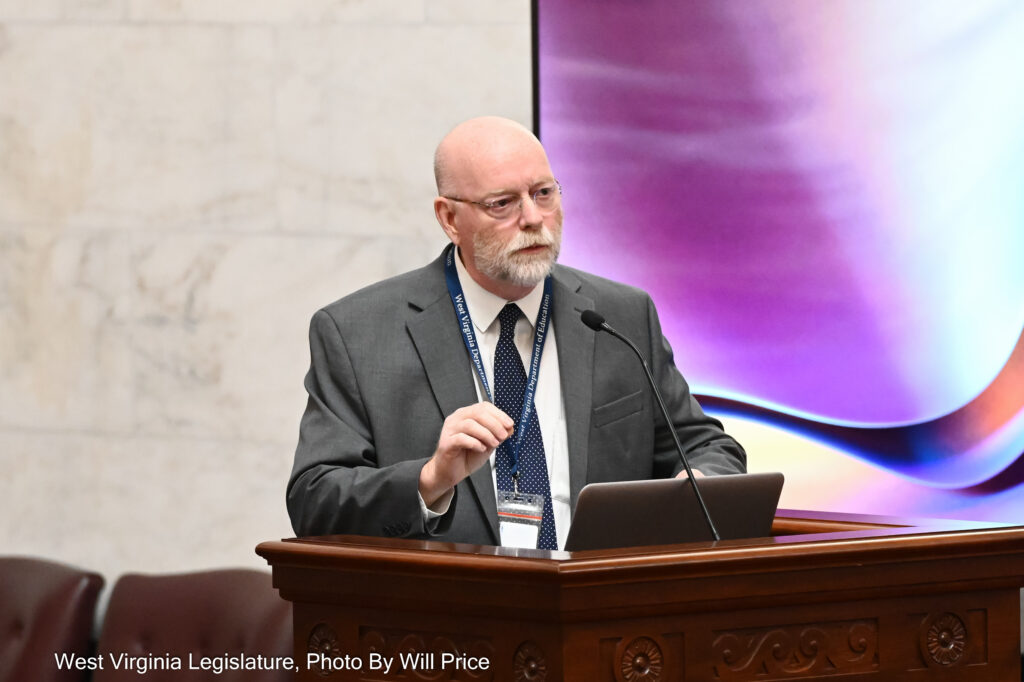Updated on Tuesday Dec. 12, 2023 at 9:30 a.m.
A program aimed at tackling the state’s teacher shortage is growing.
Now in its second year, the West Virginia Grow Your Own program aims to start students interested in becoming teachers on the path to certification in high school. Through the program, interested students begin taking dual-enrollment courses that count towards a teaching degree.
The initiative is one piece of the state’s attempts to address a shortage of more than 1,700 certified teachers across the state.
Jeff Hunter, coordinator of educator preparation for the West Virginia Department of Education, told the legislators of the Joint Standing Committee on Education Sunday evening the 33 participating counties are now averaging 11 students in Grow Your Own.
“We need to have somewhere between 10 and 19 students per grade level participating if we’re going to attack that 1705 teaching teacher deficit that we’re facing now,” he said.
Hunter said the total number of students participating is 345 students up from 235 students last year. He broke down some of the demographics of the participants, including the fact that only 16 percent are male.
“It’s still predominantly a female oriented system,” Hunter said. “It is closely representing what the current teaching population looks like for gender. It does not represent our student population, so we need to have more men focused in education.”
On a more positive note, Hunter said 28 percent of Grow Your Own students are first generation post-secondary attendants.
“That’s incredible, this is breaking cycles,” he said. “This is getting students into an opportunity to do something different for their community, and they will represent their community very well.”
Del. Heather Tully, R-Nicholas, asked Hunter why more counties were not participating, particularly population-dense counties like Harrison, Monongalia, Raleigh and Wood counties. She suggested that perhaps superintendents were unaware of the potential for establishing a teacher pipeline.
“Do we survey students in all of the counties about expressed interest in a program such as this?” Tully asked. “So, say maybe the program is not offered in those four population dense counties though, do we know if students would be interested?”
Hunter said students in non-participating counties were not surveyed but was open to the idea.
“I think that would be telling for the superintendent to understand what their pipeline should and could look like,” he said.
Several legislators asked about tracking students that do not complete or leave the program before being certified as teachers- since the cost of dual credit courses in high school is subsidized by the state.
Hunter said they are tracking completion numbers, but also pointed out they do not have complete enrollment numbers from universities to know how many teachers are leaving more traditional routes.
“It’s not a bad thing if a student decides teaching is not for them,” he said. ”We’ve seen things happen in schools with teachers who should not have made that choice for their route. And we want to encourage them to make the best decision possible for them.”
***Editor’s Note: This story was updated with a correction. Several statements were incorrectly attributed to Sen. Amy Grady, R-Mason, but should have been attributed to Del. Heather Tully, R-Nicholas.




















